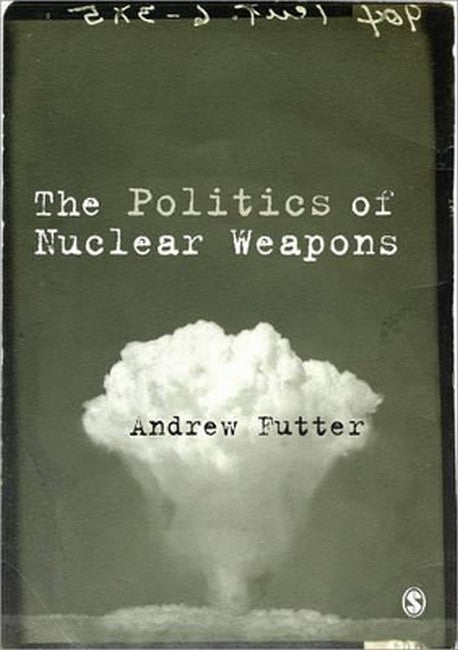Andrew Futter is a Senior Lecturer in International Politics at the University of Leicester.
Request Academic Copy
Please copy the ISBN for submitting review copy form
Description
Introduction: the politics of nuclear weapons Chapter 1: What are nuclear weapons? Chapter 2: Testing, defining and delivering nuclear weapons Chapter 3: Nuclear proliferation: why states do or don't build the bomb Chapter 4: Nuclear strategy: understanding the MADness Chapter 5: Vertical proliferation challenges: assessing Article VI of the NPT Chapter 6: Horizontal proliferation challenges: the nuclear outliers Chapter 7: Managing nuclear proliferation challenges: limiting, preventing and defending Chapter 8: Nuclear weapons and new global actors Chapter 9: Nuclear disarmament Chapter 10: Enduring nuclear challenges Conclusion: surviving our nuclear future
Andrew Futter has written a superb textbook on the politics of nuclear weapons, covering both technical and political matters with original insight, expert commentary and thorough organization that makes this an excellent choice for undergraduate and graduate courses in international relations, foreign policy and military strategy. -- Stephen Cimbala This timely book will provide students and academics alike with a valuable foundation for understanding nuclear weapons related issues in both historical and contemporary contexts. Andrew Futter guides the reader through the technologies, strategies and debates that have characterized the nuclear age from the Manhatten Project to present day concerns over the potential for nuclear terrorism and Iran's continued nuclearization. -- Professor Wyn Bowen The book offers a meaningful synthesis of a wide variety of facts and opinions on key issues concerning nuclear weapons. Succinctly yet accurately, Futter describes the early years of the development of nuclear weapons and nuclear strategies, discusses differences between vertical and horizontal proliferation, identifies the obstacles associated with managing nuclear proliferation and disarmament, and addresses the challenges related to the access of non-state actors to nuclear weapons. -- Lubos Fendrych, PhD student in Global Studies at University of Massachusetts, Lowell

